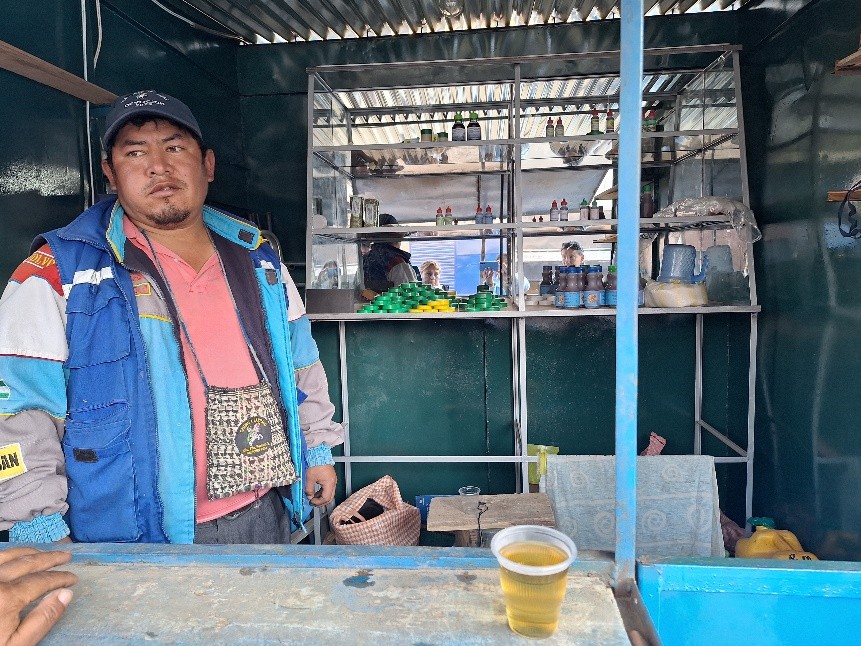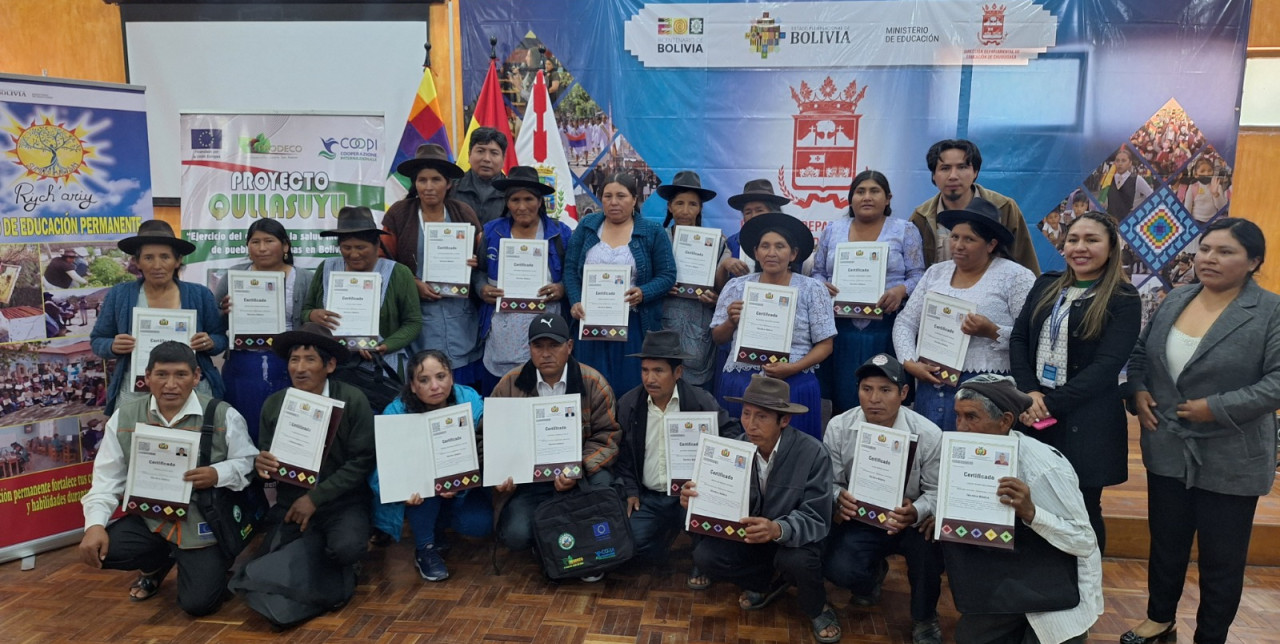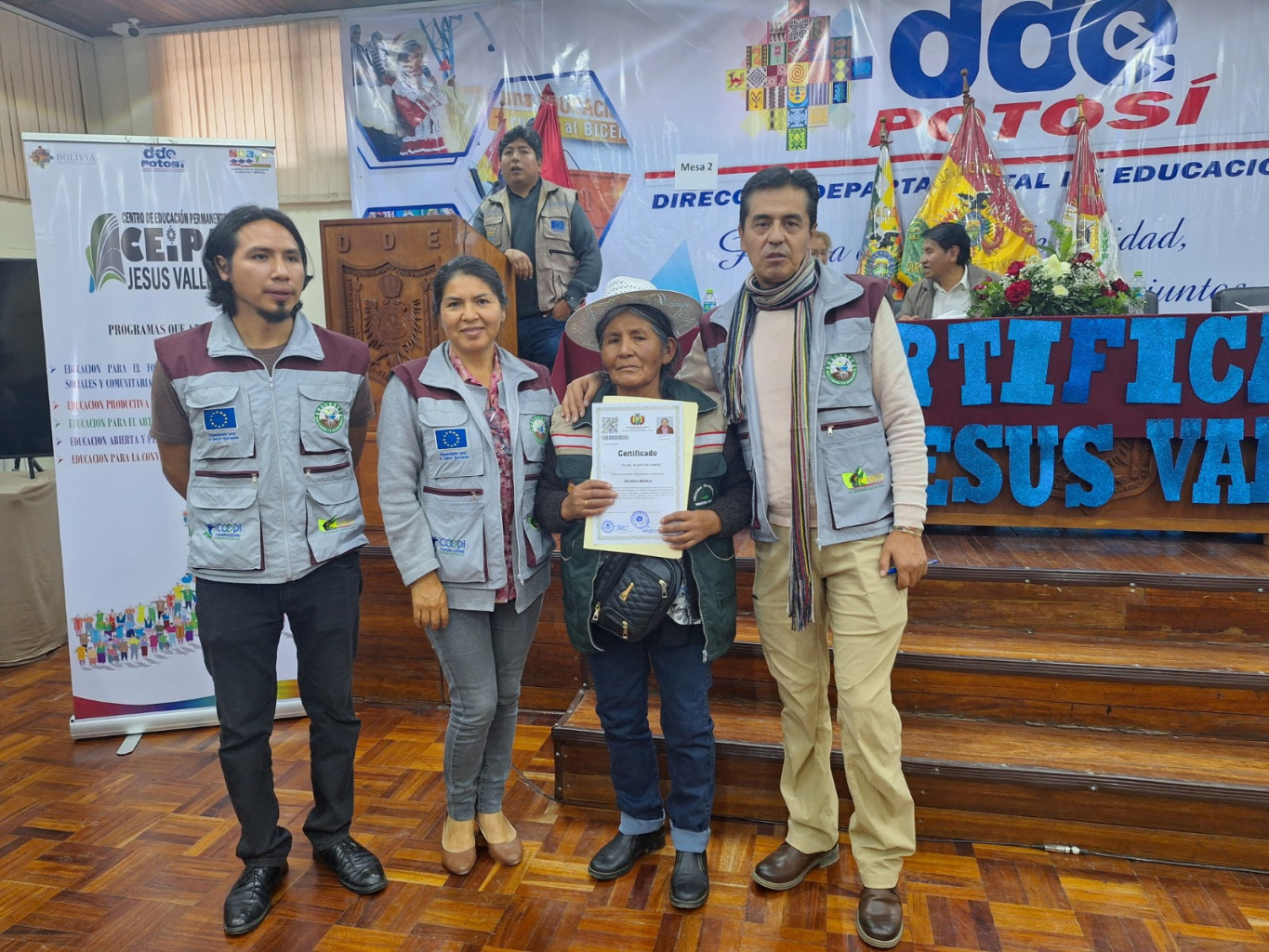23-10-2024 | di COOPI
Bolivia. Intercultural health: the results of the Qullasuyu project
On 14 November 2024, the project ‘Qullasuyu: exercising the right to intercultural health of indigenous peoples in Bolivia', promoted by the Departmental Councils of Traditional Medicine (CODEMETRA) of Potosí and Chuquisaca, with the support of PRODECO and COOPI - Cooperazione Internazionale, and financed by the European Union, will end in Bolivia. The project aimed to strengthen the exercise of the right to holistic and intercultural health of indigenous communities, in accordance with Law 459 on Bolivian Ancestral Medicine and the Intercultural Community Family Health Policy (SAFCI), which promotes the integration of traditional and academic medicine in the health system.
In order to achieve this goal and provide more effective and structured responses, COOPI and its various partners carefully analysed the needs, perceptions and experiences of local communities, traditional doctors and public health authorities. This process highlighted the difficulties that prevent indigenous people from accessing intercultural health, as well as the cultural and structural barriers that hinder the integration of traditional and academic medicine.
Beneficiaries and project impact
The project involved a wide range of beneficiaries, both adults and children, with different needs and requirements.
Approximately 1,300 traditional doctors received training to improve their organizational and technical skills, facilitating their integration into the conventional health care system. The two CODEMETRA have also strengthened their institutionalization and operational capacity, particularly in rural areas.
Some 10,000 indigenous people, who often live in poverty and do not exercise their right to access intercultural health services, benefited from awareness-raising campaigns on the right to intercultural health and disease prevention.
A group of 1,000 Quechua children and adolescents received intercultural education through the inclusion of traditional medicine in school curricula. Similarly, 200 indigenous adolescents and 200 rural teachers participated in intercultural health reflection spaces and received educational materials to innovate pedagogical processes.
Finally, 100 academic doctors took part in training programmes to facilitate the integration of traditional and academic medicine, with the aim of creating joint treatment protocols.
These activities, coupled with the creation of artisanal workshops for the production of traditional medicines in collaboration with universities, have strengthened the link between the two systems of care, helping to overcome cultural barriers and promote the inclusion of indigenous communities in the health system.
Good practice: the story of Chinchin
 ?
?
The story of Chinchin, a traditional doctor from the Mojocoya organisation, is a powerful example of the project's potential. As a naturopath specialising in the use of medicinal plants, Chinchin took part in workshops organised by PRODECO, which gave him the impetus to set up a production business. Today, his shop sells a range of products such as rheumatism ointments, cough syrups and herbal teas, all made from local natural ingredients. The training he received during the project reinforced his existing knowledge and demonstrated how traditional medicine can be integrated and flourish in the context of intercultural health. In this way, the project has contributed not only to improving access to health, but also to enhancing ancestral skills and promoting a holistic and inclusive vision of medicine in Bolivia.
COOPI has been working in Bolivia since 1985, promoting sustainable development and improving the living conditions of the most vulnerable communities. The Qullasuyu project fits perfectly into this mission: thanks to its multi-sectoral and participatory approach, COOPI will continue to support local communities, promote the inclusion of traditional medicine in the health system and contribute to the reduction of health inequalities.




 Bolivia
Bolivia
